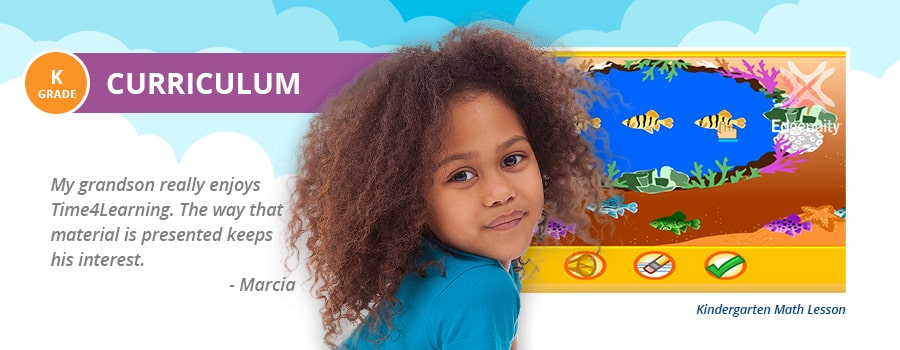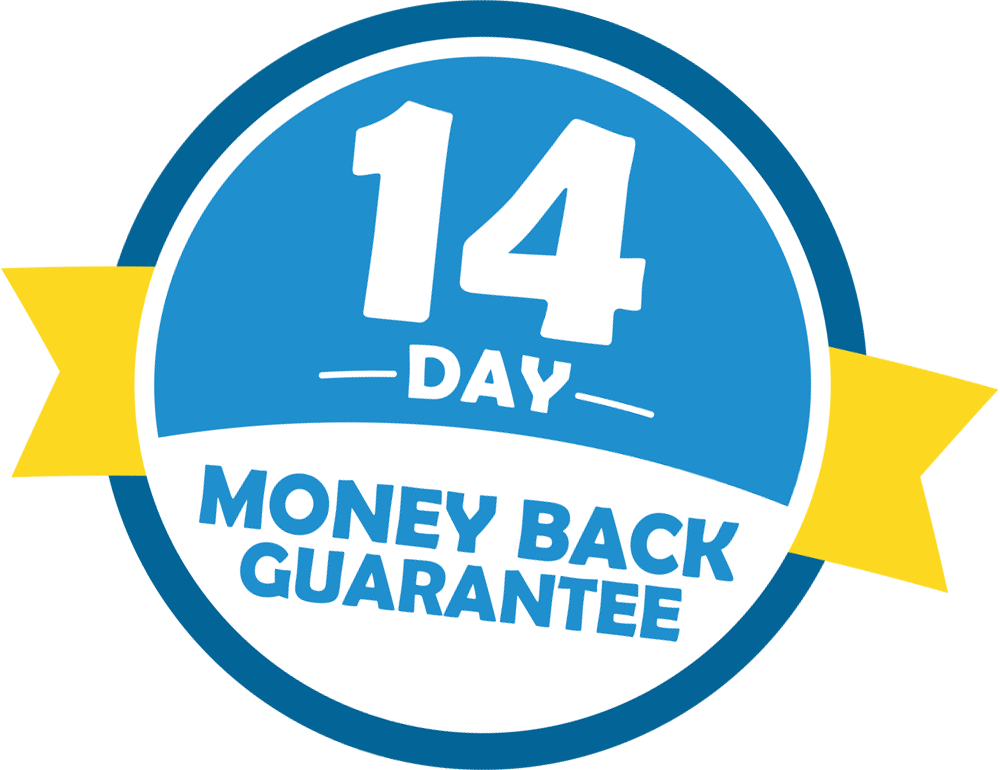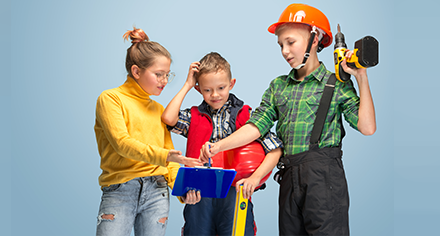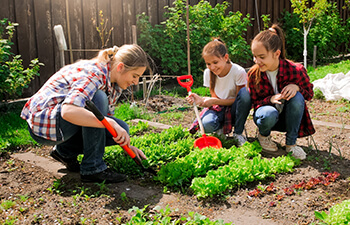Online Kindergarten Homeschool Curriculum and Lesson Plans
Kindergarten is such an exciting time for children and their families. Most kindergarten students are about four or five years old. It’s often the first time children begin their homeschool journey, and it helps set the stage for future learning. Time4Learning’s kindergarten homeschool curriculum empowers children to reach their learning objectives for the year. Our corresponding lesson plans will help your family stay organized and on track throughout your homeschool journey.
What Do Kindergarteners Learn?
In kindergarten, students learn and begin to develop numerous fundamental skills that can have a lasting impact on them well into their adult years. Although not all states require children to attend kindergarten, studies have shown that there are numerous benefits to receiving a kindergarten education.
Below are just a few of the skills and concepts students will learn this year:
- Academic skills such as reading, writing, and counting
- Behavioral, social and cognitive skills
- Sitting and paying attention, focusing on a task, and working with others
- Nailing down their letters, sounds, and words
- Fundamental math skills such as counting by 1s, 2s, 5s, 10s
- Basic addition and subtraction
- Identifying shapes
Learn more about how Time4Learning can help your student achieve their academic goals below by viewing our kindergarten lesson plans.
What to Look for in a Kindergarten Curriculum
If you’re learning how to homeschool kindergarten, it’s essential to keep these things in mind when choosing the right curriculum.
- Does the curriculum make learning fun and keep young children engaged?
- Is the material taught in a clear way using real-world examples?
- Does it include reporting tools that make tracking progress easy?
- Are there plenty of opportunities for children to reinforce skills?
- Do the activities promote problem-solving skills?
What Is Included In Time4Learning’s Kindergarten Lesson Plans?
As a Time4Learning member, you’ll gain access to our homeschool kindergarten lesson plans that will provide you with everything you need to know about your child’s lessons. Although lesson plans are typically used by educators to teach material, the Time4Learning lesson plans for kindergarten are provided as more of a resource to keep parents informed on what their students are learning since Time4Learning’s online curriculum already teaches the material for you.
The Time4Learning homeschool kindergarten lesson plans include the following information:
- Name of each lesson and activity
- Description and objective
- Activity type (scored, non-scored, printable worksheets, test)
- Activity number
- Number of chapters, activities, worksheets, quizzes within each subject
- Answer keys for printable worksheets
Math Curriculum and Lesson Plans
Time4Learning’s kindergarten math curriculum includes over 200 kindergarten learning activities in many different themes. Guided and motivated by animated characters, students will learn the following:
- Counting and recognizing numbers and patterns
- Addition and subtraction
- Identifying differences between 2D and 3D shapes
Language Arts Curriculum and Lesson Plans
With over 350 activities spread across 24 chapters, Time4Learning’s kindergarten language arts homeschool curriculum will help your child:
- Recognize letters and their sounds
- Read sight words
- Develop a basic vocabulary
- Develop spelling skills
Kindergarten Science Curriculum
Time4Learning’s kindergarten science homeschool curriculum teaches different branches of science through interactive activities, fun songs, and hands-on projects. Using fun, interactive animations, students learn scientific concepts such as:
- Qualitative and quantitative observations
- Differences between living and nonliving things
- Different types of animals and their characteristics
- Earth’s materials and how living things use them
Try Time4Learning Risk Free!
- PreK-12th Online Curriculum
- 24/7 Access to 3,500+ Lessons and Activities
- Automated Grading & Reporting
- Activity Planner for Easy Scheduling
- Start, Stop, or Pause Membership Anytime








